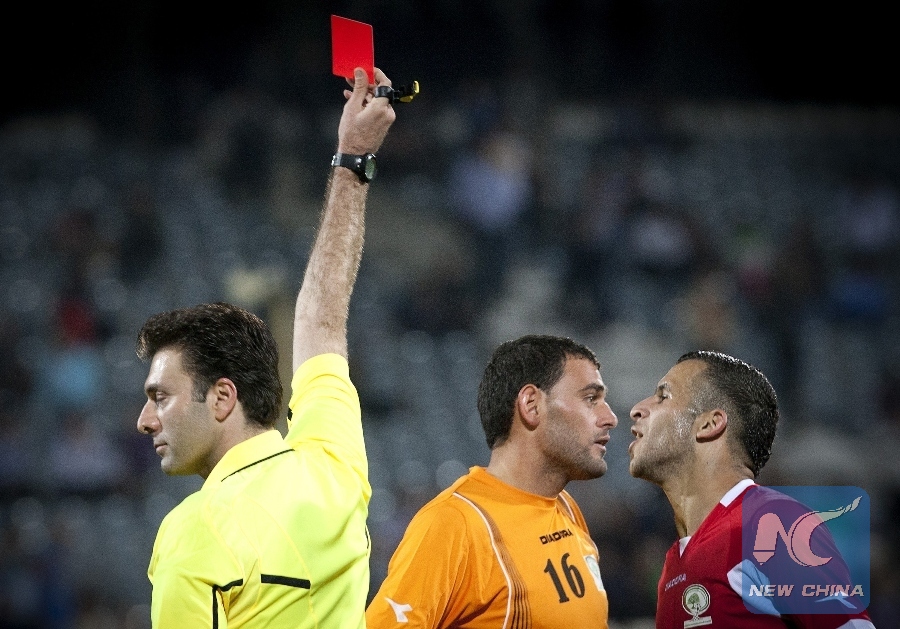
File Photo: Referee Saeed Mozaffarizadeh (L) gives a red card to Palestinian goalkeeper Mohmmed Shbair (C) during a friendly football match at Azadi Stadium in Tehran, Iran, Oct. 5, 2011. (Xinhua/Ahmad Halabisaz)
WASHINGTON, June 10 (Xinhua) -- Belgian researchers have found that football referees may penalize situations more severely when watching them in slow motion compared with real time.
The study published on Sunday in the open access journal Cognitive Research: Principles and Implications revealed that there is no significant difference in the accuracy of a referee's decision about whether a foul had occurred or not.
The slow-motion videos rendered 63 percent of accuracy while the real-time videos rendered 61 percent of accuracy, according to the study.
However, the judgement of intention or force behind a foul differed. More red cards were given by referees watching in slow motion compared with those given when watching real time video playbacks.
Jochim Spitz and colleagues at University of Leuven studied responses of 88 elite football referees to video clips of a foul warranting a yellow card.
They were shown 60 video clips of foul situations from football matches in real time or slow motion. Two independent ex-international referees that are currently acting as refereeing experts determined the correct decisions as a point of reference.
The authors concluded that although slow motion playback could be a useful tool in assessing some decisions, such as off-side and determining the exact impact of a contact, it may not be the best tool for decisions that involve judging human behavior and intention.
"Slow motion video may make it clearer who initiated a foul, whether there actually was contact and whether a foul occurred either inside or outside the penalty area. However, judging human emotion, like intentionality is quite another story," said Spitz, the paper's corresponding author.
Spitz said the finding that referees were more likely to make more severe decisions following slow motion replays, was an important consideration for developing guidelines for the implementation of video assistant refereeing (VAR) in football leagues worldwide.
The FIFA has approved the use of VAR technology at World Cup 2018 in Russia.

